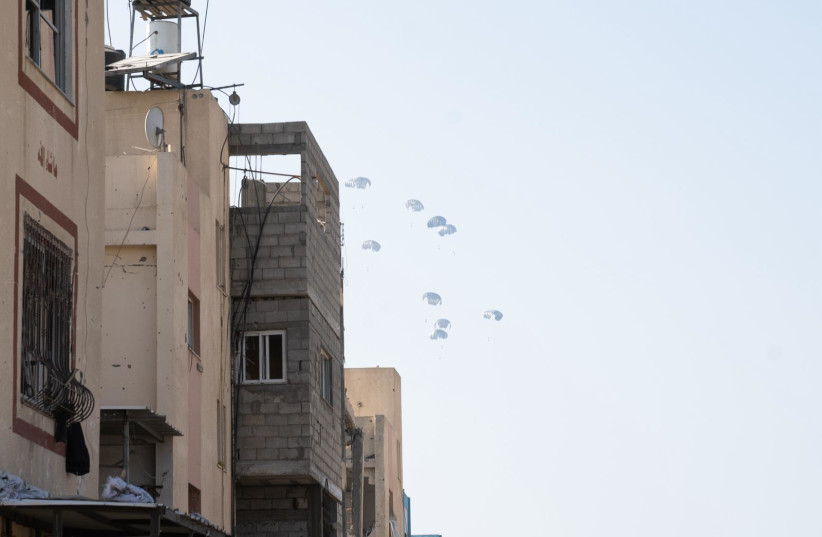On Saturday, the US military carried out its first airdrop of humanitarian aid into Gaza, two US officials said.
The officials, speaking on the condition of anonymity, said the airdrop was carried out using three C-130 planes.
"We are conducting planning for potential follow-on airborne aid delivery missions," the statement said.
A US official told Reuters the airdrops took place over southwestern Gaza and the town of Mawasi.
One of the officials said more than more than 38,000 meals on 66 pallets were airdropped into the Strip, where the United Nations says one quarter of the population is one step from famine. Palestinians posted videos on social media showing boxes of aid being dropped.
The White House has said the airdrops will be a sustained effort and that Israel was supportive of the operation.
Under pressure at home and abroad, the Biden administration is also considering shipping aid by sea from Cyprus, some 210 nautical miles off Gaza's Mediterranean coast, according to a US official.

Some experts said its being forced to resort to costly, inefficient airdrops was the latest demonstration of Washington's limited influence over Israel as it pursues its war with Hamas. Washington is arming Israel and considers it one of its closest allies in the region.
Critics of airdrops say they have only a limited impact on the suffering and that it is impossible to ensure supplies do not end up in the hands of terrorists.
Other countries including France, Egypt, and Jordan have carried out airdrops of aid into Gaza.
The decision to drop aid was made on Friday, a day after the deaths of Palestinians surrounding a truck of humanitarian aid threw a spotlight on the humanitarian crisis in the Gaza Strip.
Hamas-run health authorities in Gaza said 115 people were killed in Thursday's incident, attributing the deaths to Israeli fire and calling it a massacre.
Israel blamed most of the deaths on crowds that swarmed around aid trucks, saying victims had been trampled or run over. An Israeli official also said troops had "in a limited response" later fired on crowds they felt had posed a threat.
Israel says it is committed to improving the humanitarian situation in Gaza, and accuses Hamas terrorists of endangering Palestinian civilians by using them as human shields.
The IDF also published aerial footage of the event.
Trucks entering Gaza
Before the conflict, Gaza relied on 500 trucks with supplies entering daily.
The UN Palestinian refugee agency UNRWA said on Friday that during February, an average of nearly 97 trucks were able to enter Gaza each day, compared with about 150 a day in January.
Deliveries through the Rafah Crossing between Egypt and Gaza have been almost halted. While trucks have sometimes passed through Israel's Kerem Shalom crossing, they have been disrupted by Israeli protesters seeking to block deliveries. UNRWA says the crossing was closed from Feb. 8-10 and Feb. 15-17.
Jerusalem Post Staff contributed to this report.
